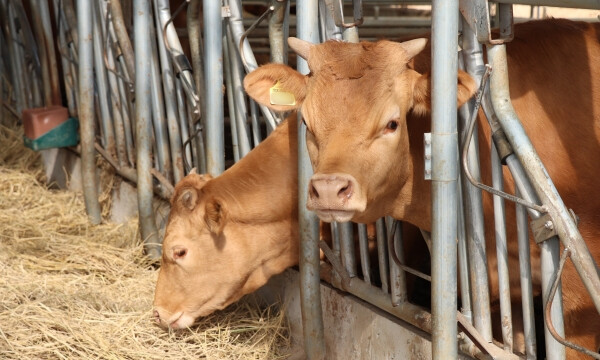
Jeju-produced Hanwoo (Korean beef) is expected to begin exports to Singapore as early as the second half of this year. This development comes after the World Organisation for Animal Health (WOAH) officially recognized Jeju as a "foot-and-mouth disease (FMD) vaccine-free zone." This achievement is a result of the South Korean government's efforts to secure FMD-free zone status for Jeju Island, a region free from FMD outbreaks, after the entire country lost its FMD-free status due to a nationwide outbreak in 2023.
WOAH's Recognition and South Korea's Achievements
According to the Ministry of Agriculture, Food and Rural Affairs (MAFRA), Jeju Island officially received FMD vaccine-free zone status at the 92nd WOAH General Session held in Paris, France, from May 25 to 29. In addition, South Korea also achieved the remarkable feat of regaining its disease-free status for three other livestock diseases: Bovine Spongiform Encephalopathy (BSE), African Horse Sickness (AHS), and Rinderpest. WOAH's recognition of a disease-free zone involves a rigorous process, including application submission, preliminary review by the secretariat, evaluation by expert groups and scientific committees, and consultation with member countries. Notably, despite an FMD outbreak occurring in Jeollanam-do, a geographically adjacent province to Jeju Island, in March of this year, the government's thorough quarantine management and close cooperation with the international community enabled Jeju to obtain the FMD-free zone status.
Path to Export and Singapore's Market Potential
Following WOAH's approval, Jeju Hanwoo exports are set to commence as soon as quarantine negotiations between the South Korean and Singaporean governments are finalized. Practical export movements have already begun, with 700kg of Jeju Hanwoo temporarily imported and utilized at a Hyundai Motor event held in Singapore for two days starting on June 4. A MAFRA official stated that the Singaporean government is expected to conduct an on-site inspection in Jeju within the year, suggesting that the specific export schedule will be confirmed after this inspection.
Singapore is considered a highly promising market for the Korean livestock industry, given its high-income levels and steadily increasing meat consumption. In 2023, Singapore's per capita meat consumption expenditure was approximately $642, marking an average annual increase of 4.9% compared to $530 in 2019, and accounting for 32.4% of total food consumption expenditure. Notably, retail sales of beef and veal grew at a high annual rate of 17.8%, from $68.2 million in 2018 to $154.6 million in 2023, and are projected to reach $208.4 million by 2028. The Singaporean government's '30 by 30' food self-sufficiency strategy (aiming to increase food self-sufficiency from 10% to 30% by 2030) is also expected to have a positive impact on diversifying meat import sources.
Introduction to Jeju Heuk-woo (Black Cattle)
The "Jeju Hanwoo" opening up for export actually refers to Jeju Heuk-woo, a native traditional Korean cattle breed unique to Jeju. Jeju Heuk-woo was designated as a Natural Monument in 2013. Unlike common yellowish Hanwoo, it has black hair. Despite its smaller stature, it boasts a robust constitution, strong resistance to disease, and excellent endurance. It is also known for its gentle temperament. Historical records, such as the Joseon Dynasty Annals and Tamna Sunryeokdo (a record of royal tours to Jeju), show that it was offered for ancestral rites and as tribute, highlighting its significant historical value.
Significance for South Korean Livestock Exports
The export of Jeju Heuk-woo to Singapore will be a significant milestone in expanding South Korea's livestock product exports. This WOAH disease-free zone recognition is expected to internationally promote the excellence of Jeju Hanwoo and have a positive ripple effect on the future pioneering of overseas markets for South Korean livestock products.
[Copyright (c) Global Economic Times. All Rights Reserved.]






























